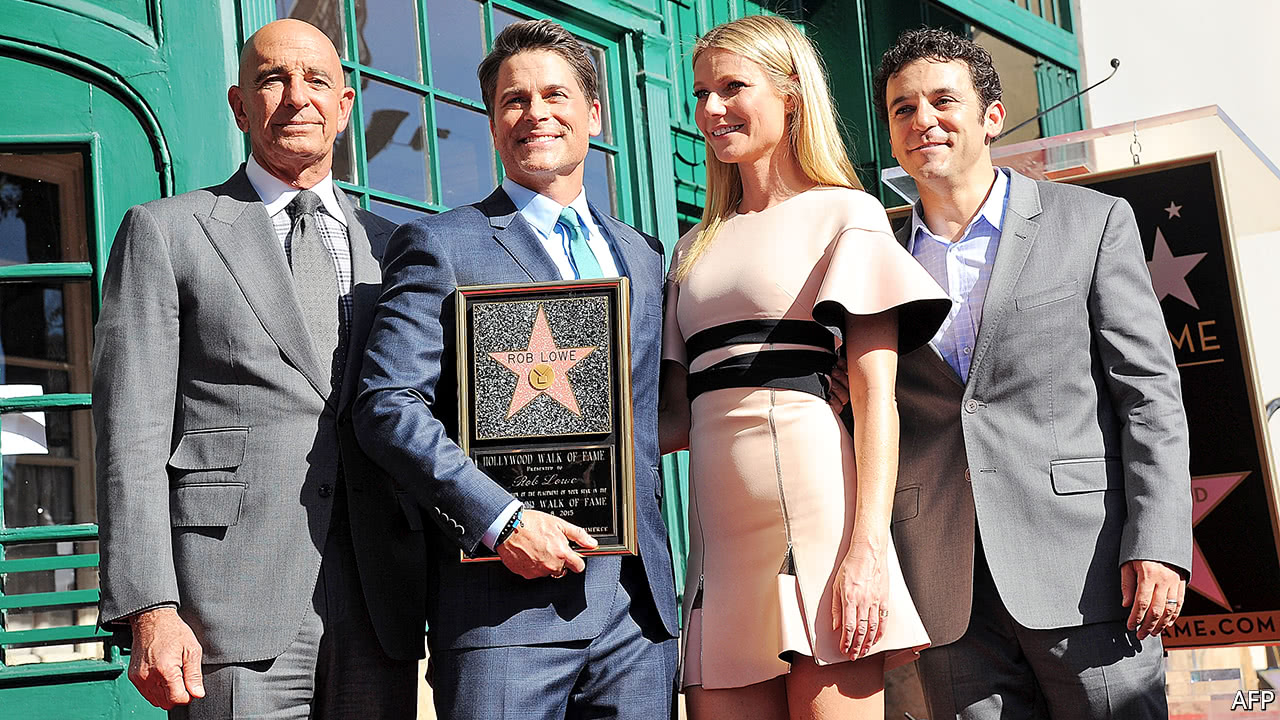
AS DISTRESSED assets go, the Weinstein Company (TWC) is uniquely distressing. Much of its value was bound up in the brands of its eponymous founding brothers, one of whom, Harvey Weinstein, has been accused of sexual harassment and of assault by dozens of women in the film industry in America and elsewhere. Amazon Studios, Apple and some television networks have hastened to cut ties with the studio, unwind production deals and remove Mr Weinstein’s name from credits. Mr Weinstein’s accusers may well sue the company. It was already heavily indebted after a recent string of box-office flops.
Who would see an opportunity? Aside from TWC’s particular troubles, independent films are a tough business, and the studio has had to haggle with creditors. But for a vulture investor some of the studio’s assets hold value. On October 16th Thomas Barrack (pictured above), chairman of Colony Capital, a private-equity firm, said he would immediately put an undisclosed sum of cash into TWC and look at buying part or all of it. Mr Barrack, a 70-year-old property investor who is a friend of President Donald Trump and who has served as the chairman of Mr Trump’s inaugural committee, has experience swooping in for high-profile distressed assets. In 2008 his firm acquired Michael Jackson’s Neverland ranch. Colony also put up millions to rescue Annie Leibovitz, a photographer known for her work with celebrities, from financial trouble.
-
The flow of Rohingya refugees into Bangladesh shows no sign of abating
-
A better way to search through scientific papers
-
Germany’s coalition talks begin
-
Not just another film about Jane Goodall
-
Private jets are getting cheaper
-
Retail sales, producer prices, wages and exchange rates
Still, some see the potential acquisition as a bail-out for the Weinsteins, who own more than two-fifths of the studio. Harvey Weinstein, who was fired from running the company on October 8th, has now given up his board seat, and Bob Weinstein, who now faces a single accusation of sexual harassment (and denies the allegation), may be on his way out. Making no direct reference to the scandal engulfing the studio, Mr Barrack said Colony would help return TWC to “its rightful iconic position in the independent film and television industry”.
He is certainly familiar with TWC’s assets, which comprise its film library as well as a slate of films and television projects. In 2010 his firm participated in the purchase of Miramax Films, the Weinstein brothers’ predecessor film company, from Disney for $660m. According to a Hollywood producer familiar with both firms, Miramax’s new owners could not develop projects based on many of their successful old titles, like “Shakespeare in Love” and “Bad Santa”, without the consent of the Weinstein brothers, who had produced them. Miramax and TWC entered into complicated development agreements, but little of significance has come from them thus far (“Bad Santa 2” was made, and flopped on its release last year, failing to earn back its budget). The two also share production rights to some television properties, including Project Runway, a reality competition around fashion.
Combining Miramax and TWC into one entity would clear up rights issues for both companies. Mr Barrack no longer has a stake in Miramax, as Colony and its fellow investors sold the studio last year to beIN Media Group, a sports media company based in Qatar, for an undisclosed sum. Mr Barrack may buy TWC as a short-term salvage job in order to sell it to Miramax’s current owner, or he could break the company into pieces, splitting off, for example, the television production business, and sell them off individually. Whatever happens to the business now, the Weinstein name will not be on it.
Source: economist
A property billionaire rescues Harvey Weinstein’s studio